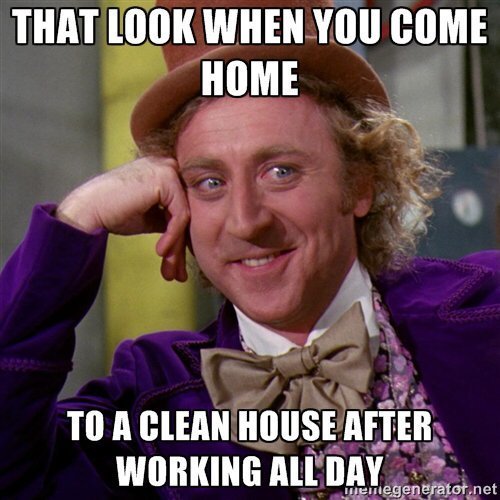Starting a cleaning business isn’t just about mops and buckets — you need to navigate a maze of legal requirements first.
Without the right licenses and permits, your shiny new cleaning venture could get shut down before you even clean your first toilet. Let’s dive into what you actually need to operate legally (and avoid those scary fines).

The Essential Licenses and Permits You Need for Your Cleaning Business
Skip ahead:
- Business licenses and registrations
- Insurance requirements
- Special permits and considerations
- How to stay compliant
Business Licenses and Registrations

General Business License
This is non-negotiable. Almost every city, county, and state requires a general business license for you to legally operate your cleaning company.
Think of it as your permission slip to make money in your area. You’ll typically pay between $50-$100 annually, depending on your location.
Where to get it? Your local government office or municipal building. Without this basic license, you’re technically operating illegally and could face fines or even get shut down.
DBA Registration (Doing Business As)
If your business name is anything other than your legal name, you’ll need a DBA registration.
For example:
- “Jane Smith” (no DBA needed)
- “Jane’s Spotless Cleaning” (DBA required)
This registration protects your business name locally and typically costs between $10-$100. You’ll usually need to renew it every few years.
DBA registration lets you open business bank accounts under your business name and helps establish your brand legally. Get more info on DBA requirements here.
EIN (Employer Identification Number)
Think of this as a social security number for your business. It’s free to get from the IRS and you’ll definitely need one if you:
- Plan to hire employees
- Want to open a business bank account
- Form an LLC or corporation
Even if you’re starting solo, getting an EIN separates your personal and business finances, which is smart for tax purposes.
Insurance Requirements

General Liability Insurance
This isn’t technically a license, but it’s absolutely essential for cleaning businesses. Why? Because accidents happen.
You (or an employee) could:
- Break a client’s expensive vase
- Damage flooring with the wrong cleaner
- Cause someone to slip and fall
General liability insurance protects you from these claims and legal expenses. Most commercial clients won’t even hire you without it.
Think of it as the cost of doing business — and sleeping well at night. Learn more about liability insurance for cleaning businesses.
Workers’ Compensation Insurance
If you have employees, this isn’t optional in most states. Workers’ comp covers:
- Medical expenses if an employee gets injured
- Lost wages during recovery
- Legal protection if an employee sues
Cleaning can be physically demanding work with repetitive motion injuries, slip-and-falls, and chemical exposure risks. Protecting your team protects your business.
Surety Bonds
Some clients (especially government or commercial ones) might require you to be “bonded.”
A surety bond is basically a promise that:
- Your service will be completed as agreed
- You’ll work ethically
- Clients can recover damages if something goes wrong
It’s like a safety net for your clients that helps build trust in your new business.
Special Permits and Considerations

Seller’s Permit
Do you plan to sell cleaning products to customers? If so, you might need a seller’s permit (sometimes called a vendor’s license) to collect and remit sales tax.
This is separate from your general business license in some states. Check with your state’s department of revenue to see if you need one.
Specialized Permits
Certain cleaning niches require extra permits:
- Medical facility cleaning: Health department permits
- Restaurant cleaning: Food safety knowledge
- Hazardous waste cleanup: Environmental permits
These specialized areas might require additional training or certification for you and your staff. The upside? You can charge premium rates for these specialized services.
Business Entity Registration
Before getting licenses, you’ll need to decide on a business structure:
- Sole proprietorship (simplest but highest personal liability)
- LLC (limited liability protection with reasonable paperwork)
- Corporation (most protection but most complex)
If you form an LLC or corporation, you’ll need to file Articles of Organization or Incorporation with your state. This is often a prerequisite for other licenses.
The structure you choose affects your taxes, personal liability, and paperwork requirements. Compare business structures at the SBA website.
How to Stay Compliant and Set Yourself Up for Success

Research Local Requirements
Licensing rules vary widely between locations. What works in one county might not work in the next. Contact your:
- Local small business administration
- City hall
- State licensing board
Ask specifically about cleaning business requirements in your area. Don’t rely solely on internet research — regulations change frequently.
Keep Everything Updated
Set calendar reminders for license renewals. Operating with expired licenses can result in:
- Penalties
- Loss of insurance coverage
- Damage to your reputation
- Lost contracts
Use Licenses as Marketing Tools
Being fully licensed, bonded, and insured sets you apart from competitors who cut corners. Mention these credentials in your:
- Marketing materials
- Business cards
- Website
- Social media profiles
Clients feel more comfortable hiring a properly credentialed business, especially when you’ll be in their homes or businesses. Learn how to promote your credentials effectively.
Consider Professional Help
The upfront cost of consulting with a business attorney or accountant might seem high, but it’s nothing compared to the cost of:
- Operating illegally
- Missing tax obligations
- Being underinsured when a claim happens
They can ensure you’ve covered all legal requirements for your specific situation.
Getting all your legal ducks in a row might seem overwhelming at first, but it builds a solid foundation for your cleaning business. Start right, and you’ll avoid headaches later while projecting professionalism to potential clients.
Remember, your competition includes both professional companies AND under-the-table cleaners. Having proper licenses and insurance immediately elevates you above half the market!




